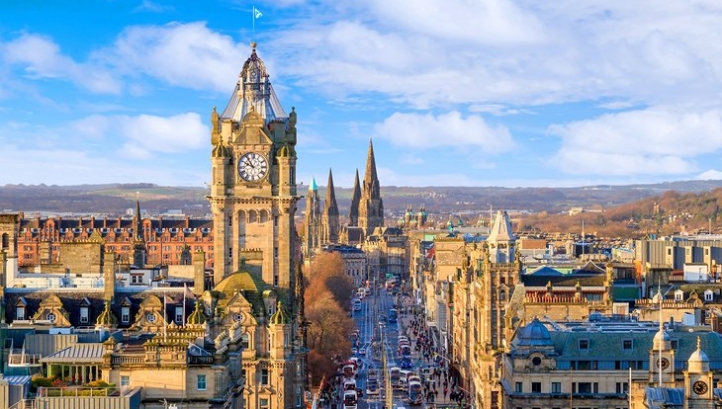Edinburgh City Council (ECC) has pledged to ensure that the city operates on a “net-zero” carbon basis by 2030 – 15 years before Scotland’s national net-zero target for 2045.

ECC claims the target is “ambitious” and that it acknowledges the existence of a “Climate Emergency”
The new commitment forms part of the local authority’s updated Corporate Policy and Strategy Committee’s report on climate, which contains measures that the council claims will “safeguard the health and wellbeing of current and future generations as well as the sustainable prosperity of the city as a whole”.
The report commits ECC to reaching “zero-carbon” status within its own operations by 2030 and calls on all actors across the city-region’s public, private and third sectors to follow suit. It additionally states that, in the event that this deadline is missed, 2037 would be set as an “absolute limit” for delivering a local zero-carbon economy.
In order to reach its 2030 target, ECC has proposed to introduce a low-emission zone – similar to London’s Ultra-Low Emission Zone (ULEZ) – to Edinburgh City Centre and, to further reduce transport emissions, to re-design the city centre in a way which focuses on pedestrians, cyclists and public transport rather than private vehicles.
The local authority is also set to help businesses redevelop supply chains to champion local sourcing and support actors across the built environment sector in developing low-carbon design standards and implementing circular economy principles.
Renewable energy will additionally play a key part in the city’s decarbonisation, with ECC set to develop in-depth plans for boosting the city’s clean power generation capacity in the coming months. Earlier this month, the local authority launched the city’s first micro-hydropower scheme in Saughton Park, and envisages similar projects coming online in the road to 2030.
Carbon emissions in Edinburgh have fallen by one-third (33%) since 2025 and ECC is on track to meet its 2020 goal of reducing its own carbon footprint by 42% against the same baseline. But the Council’s leader, Adam McVey, said it had chosen to set more ambitious and long-term targets to show that it is not “shying away from recognising the state of affairs as a Climate Emergency”.
“We can achieve a zero-carbon city by 2030, but we cannot afford for this to be delivered any later than 2037, so we have set this as an absolute limit on reaching this goal,” he said.
“I think it’s important that the Council and this city responds to the challenges that we all recognise are incredibly serious.
“Our task as a whole Council is to work cross-party to tackle this together, along with our partner organisations across the city – we owe it to future generations to get this right. It’s a massive and definitely daunting piece of work so it needs a clear direction of travel if we’re to do this properly.”
Scottish leadership
The announcement from ECC follows the Scottish Government’s decision to amend its Climate Change Bill in order to set a 2045 target for net-zero emissions.
Adopted on the same day that the Committee on Climate Change (CCC) published its advice to the UK Government for achieving net-zero by 2050, the Scottish target includes milestones of reducing national emissions by 70% by 2030 and 90% by 2040.
The CCC recommends that a 100% reduction in greenhouse gas emissions should be legislated by the UK Government “as soon as possible” and, crucially, claims this net-zero target could be achieved at the same cost that is currently put against achieving the current Climate Change Act, which is between 1-2% of GDP in 2050.
However, the report notes that Scotland, for example, could reach this status sooner. The nation is encouraged by the CCC to target net-zero emissions by 2045 – due to a greater potential to depollute its economy compared to the rest of the UK.
Edinburgh is the second city to have committed to go “further and faster” than the CCC is advising, after Glasgow City Council and Scottish Power pledged last week to make Glasgow the “UK’s first net-zero city”.
Sarah George
